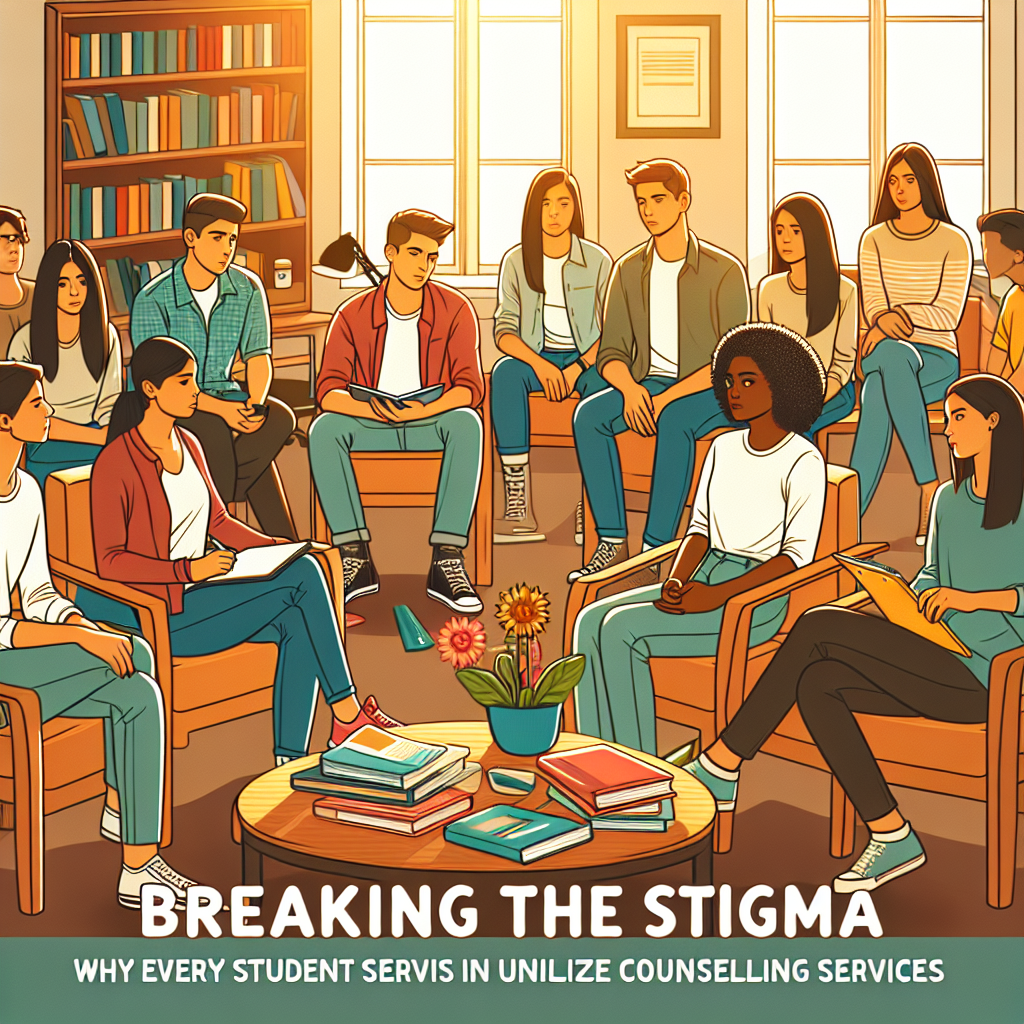Introduction
Navigating the academic landscape is no easy feat, especially for students who often find themselves grappling with stress, anxiety, and a plethora of academic pressures. In an era where mental health is finally emerging from the shadows, the conversation surrounding counseling services is more crucial than ever. Many students still hesitate to seek help, primarily due to stigma. This article is a clarion call, emphasizing that breaking the stigma is essential for every student, encouraging them to utilize counseling services for their well-being and success.
The Importance of Counseling Services for Students
A Safe Space for Expression
One of the most significant barriers students face is the fear of judgment. Counseling services offer a compassionate, non-judgmental environment where students can express their feelings honestly. Research shows that students who use counseling report improved emotional well-being and academic performance.
Addressing Academic Pressure
Academic stress is a widespread issue. A study from the American College Health Association indicated that 45% of students feel overwhelmed by anxiety. Counseling can provide strategies to manage stress, allowing students to thrive academically.
Building Life Skills
Counseling isn’t just about addressing immediate problems; it’s also about equipping students with lifelong skills. Techniques learned in therapy—such as effective communication, emotional regulation, and problem-solving—play a pivotal role in personal and professional contexts.
Case Study: Sarah’s Journey
Sarah, a sophomore majoring in engineering, faced severe anxiety during her freshman year. She felt overwhelmed by the competitive environment, leading to sleepless nights and declining grades. Eventually, Sarah decided to reach out to her campus counseling services, initially hesitant due to fear of being perceived as weak.
Analysis: Sarah’s story highlights how stigma can hinder students from seeking help. By utilizing counseling services, she learned coping strategies and improved her academic performance.
The Role of Peer Support in Counseling
Fostering a Supportive Community
Peer support is invaluable. A study from the Journal of College Student Development found that students who participate in peer-led counseling programs report increased feelings of belonging. When students share their experiences, it cultivates a supportive community that encourages others to seek help.
Encouraging Open Discussions
Establishing open dialogues about mental health can demystify the counseling process. Workshops, seminars, and informal discussions can create a culture where seeking help is normalized rather than stigmatized.
Common Misconceptions About Counseling
Misconception 1: Counseling is Only for Severe Issues
Many students believe counseling is designed only for those in crisis. In reality, counseling services benefit anyone facing stress, anxiety, or even academic challenges.
Misconception 2: It’s a Sign of Weakness
Contrary to this belief, seeking help is a strong, proactive step. Counseling empowers students to confront challenges head-on rather than avoiding them.
Misconception 3: Counselors Don’t Understand Students
Counselors are trained to help students work through various issues. Many have educational backgrounds that allow them to empathize with student situations.
Misconception 4: It’s Too Time-Consuming
While scheduling sessions might seem daunting, even a few conversations can yield significant benefits. Many universities offer flexible hours to accommodate students’ busy lifestyles.
Misconception 5: It’s Only for Mental Health Disorders
Counseling services offer support for a myriad of issues beyond mental health disorders, including stress management, relationship issues, and career guidance.
Strategies for Breaking the Stigma
Normalize Conversations About Mental Health
Encouraging open dialogue among students can help break down stigma. By integrating mental health awareness into campus culture through campaigns and workshops, institutions can foster an environment where seeking help is seen as a sign of strength.
Involve Faculty and Staff
Training faculty and staff to recognize signs of distress and promote counseling services can extend support beyond students themselves. A united front can diminish the stigma surrounding mental health resources.
Utilize Social Media Wisely
Social media platforms can be powerful tools in raising awareness. Positive narratives, testimonials, and information about available services can reach students effectively, prompting them to seek help when needed.
The Benefits of Utilizing Counseling Services
Enhanced Academic Performance
According to the National Institute of Mental Health, students who participate in counseling often see improvements in grades, retention rates, and graduation rates.
Improved Emotional Well-Being
Counseling provides students with tools to manage their emotions, leading to enhanced overall well-being. Improved mental health can lead to a positive campus experience.
Lifelong Skills Acquisition
The strategies students learn in counseling extend far beyond their college years. Skills such as stress management, resilience, and self-awareness are crucial for success in the workforce.
Conclusion
Breaking the stigma surrounding counseling services is not just a personal journey; it is a collective effort that can significantly impact the academic landscape. Every student deserves access to the tools and support needed to succeed both academically and personally. Utilizing counseling services can pave the way for a brighter, more fulfilling college experience.
As we collectively work to dismantle stigma, let us encourage each other to seek help when needed. Remember, reaching out for assistance is a sign of strength, resilience, and courage.
FAQs
1. What can I expect during my first counseling session?
Expect an initial meeting focused on getting to know you, discussing your concerns, and outlining goals for counseling.
2. Is counseling confidential?
Yes, counseling sessions are typically confidential, with few exceptions for safety and legal concerns.
3. How do I find counseling services on campus?
Check your university’s health services website or inquire at student affairs for available counseling resources.
4. Are there costs associated with counseling?
Many institutions offer counseling services free or at a low cost for enrolled students. Confirm with your campus health services for specific details.
5. Can counseling help with academic pressures?
Absolutely! Counselors can provide strategies to manage stress and improve time management skills, benefiting your academic performance.
This article empowers students to seek the support they need while dismantling stereotypes that often hold them back. Breaking the stigma is a journey we’re all on together, and every step taken can lead to better mental health outcomes for all.

